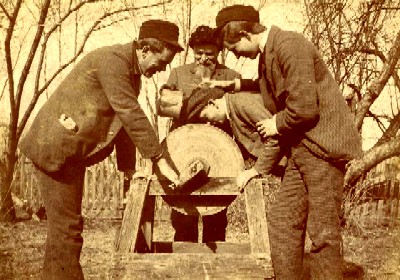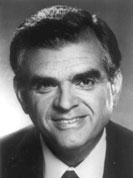 Last night, I attended the Park Board meeting at Lincoln Middle School. The big topic of discussion, as you all know, was the school siting issue; i.e., should the Park Board enter into an intergovernmental agreement with District 150 to build a school on a corner of Glen Oak Park, sharing some park land in the process.
Last night, I attended the Park Board meeting at Lincoln Middle School. The big topic of discussion, as you all know, was the school siting issue; i.e., should the Park Board enter into an intergovernmental agreement with District 150 to build a school on a corner of Glen Oak Park, sharing some park land in the process.
The most entertaining part of the evening (for me, anyway) was the presentation by District 150 consultant Judy Harris Helm. She was brought in to present the school district’s point of view on why a school sited in the park is superior to one at the current Glen Oak School location.
Appropriate for the grade school setting, Dr. Helm started her presentation with a little “show and tell.” She showed a picture of a bee rather crudely drawn by a young student, then showed a more recognizable picture of a bee she said was drawn by the same student only 45 minutes after the first one. The difference? The student only had book-learning before drawing the first picture, but had observed a real bee before drawing the second one. Conclusion: “When children only learn through books and secondary sources, they cannot practice the application of concepts. The experiences we provide shape the brain and intelligence.”
Now, if you’re like me, you’re thinking to yourself at this point, “Okay, that sounds great. What does this have to do with putting a school in a park?” Answer, according to Dr. Helm: “If that can happen with a bee, just imagine…if all this were part of a school.” She went on for at least half an hour pointing out the following:
Access to outdoors is associated with
- Reduction of depression and aggression in children
- Reduction of symptoms of attention deficit
- Reduction of discipline problems
- Environment-based education improves standarddized test scores and grade-point averages and develops skills in problem solving, critical thinking, and decision making.
- Anecdotal evidence strongly suggests that childhood experiences in nature stimulate creativity.
What does the park site offer to children and teachers?
- Botanical gardens
- Zoo with new Africa Exhibit
- Children’s museum with the river exhibit, science areas, history areas
- Fitness areas
- Frontier playground
- Nature access: study of biology, botany, zoology
- Lagoon: study of aquatic life
You get the idea. That part was actually not that entertaining. The entertaining part was the question and answer period. Immediately following her presentation, one member of the audience got up and, after pointing out to Dr. Helm that all the cited benefits were programming-related, not site-related, asked if the same outcomes — the same educational benefits — could be achieved just as effectively via a field trip to the park from the current site. Answer from Dr. Helm, and I quote: “Yes.”
A half-hour-plus argument extolling the virtues of siting the school in the park completely undermined by one simple question! It was a beautiful thing. But it got funnier — trying to save face, Helm went on to say that if the school wasn’t sited in the park, such field trips wouldn’t happen because — are you ready? — it would require planning and forethought on the part of teachers (teachers can’t/don’t plan?) and money for busing (clearly, $22 million for a new facility is far more cost effective than busing the kiddies six blocks or letting them walk). She eventually stopped talking (mercifully) and handed the mic to Hinton.
Later, during the public comment period, another member of the audience asked Superintendent Hinton what programs were in place currently at Lincoln Middle School and Woodruff High School to take advantage of Glen Oak Park which is right across the street from both schools. Mr. Hinton’s answer: “I don’t know.” If being adjacent to a park is the greatest thing since sliced bread, why isn’t the park being utilized right now by the schools that are right across the street? If it is being used, where’s the data showing the superior student performance at these schools?
It’s worth mentioning that everyone who spoke to the board during the public comment period — everyone, to a person — spoke against the park siting for the school. Included among the commenters were representatives from the Glen Oak Park Neighborhood Association, the Serenity Neighborhood Association, and the East Bluff United Neighborhood Association.
Now that we have Dr. Helm on record as saying that the same educational objectives the school district wants at the park site can be achieved at the current site at Frye and Wisconsin, I think that should be final nail in the coffin for this plan. I’m not saying it will be, because the odds are pretty good that the school board will go through with it anyway unless the park board votes it down. But it should be.


 Last night, I attended the Park Board meeting at Lincoln Middle School. The big topic of discussion, as you all know, was the school siting issue; i.e., should the Park Board enter into an intergovernmental agreement with District 150 to build a school on a corner of Glen Oak Park, sharing some park land in the process.
Last night, I attended the Park Board meeting at Lincoln Middle School. The big topic of discussion, as you all know, was the school siting issue; i.e., should the Park Board enter into an intergovernmental agreement with District 150 to build a school on a corner of Glen Oak Park, sharing some park land in the process. 
 For those of you interested in the “Community School Project” (i.e., the plan to put a replacement school for the Woodruff attendance area on a corner of Glen Oak Park), tonight’s the night to express your opinion to the
For those of you interested in the “Community School Project” (i.e., the plan to put a replacement school for the Woodruff attendance area on a corner of Glen Oak Park), tonight’s the night to express your opinion to the